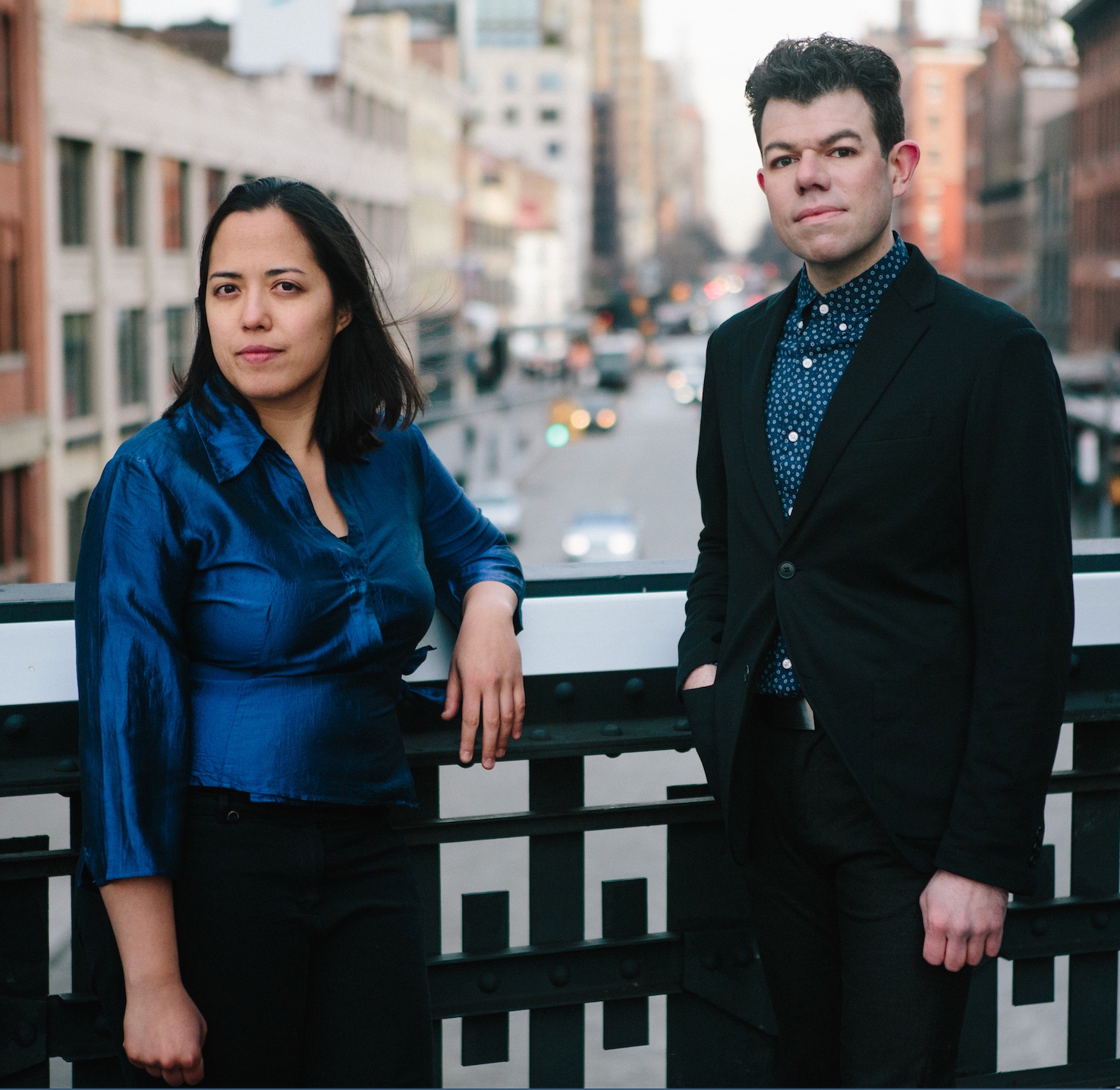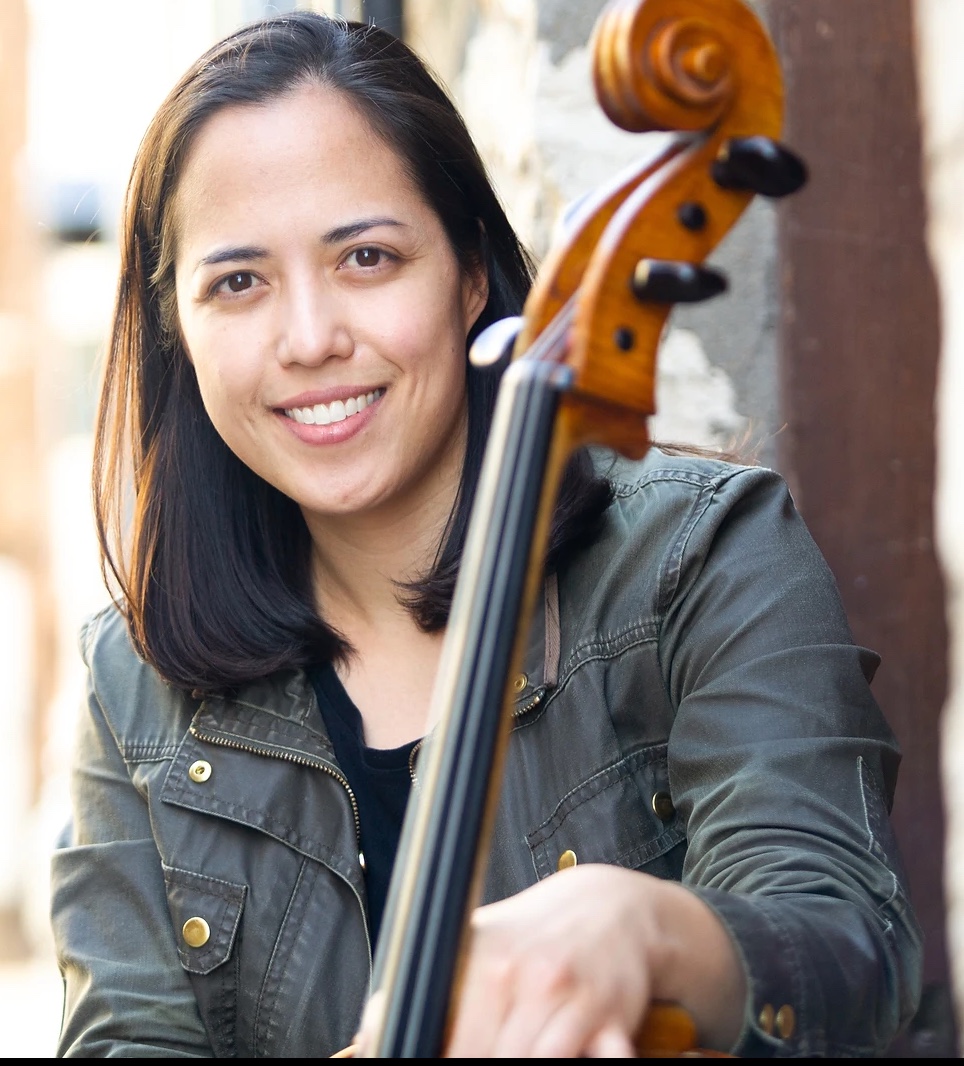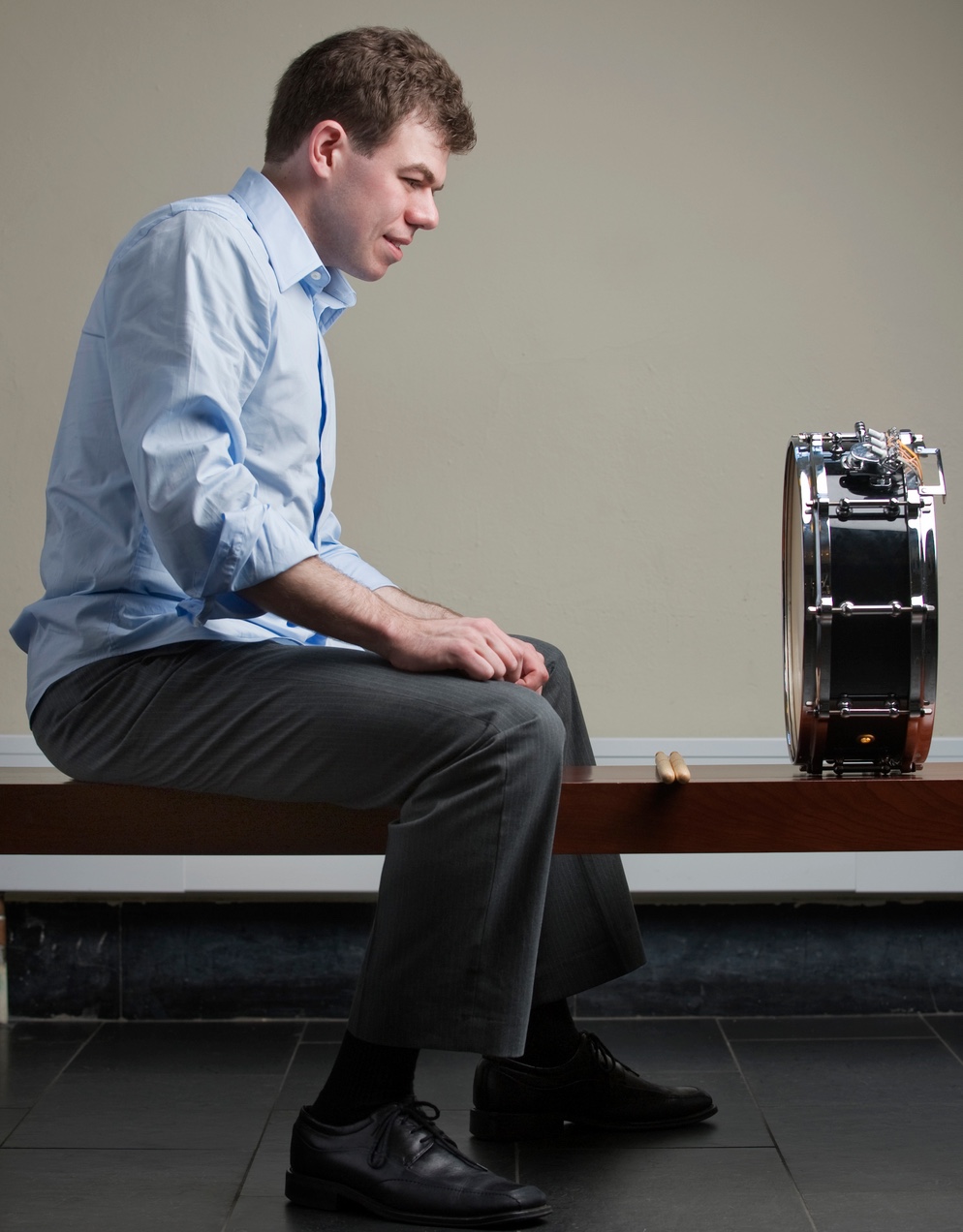by Mike Telin

The ensemble was recently named the inaugural grand prize winner of the Ariel Avant Impact Performance Prize, which supports the development and touring of new works that address sustainability goals and scientific innovation.
On Monday, March 13 at 7:30 pm at West Shore Unitarian Universalist Church, Rocky River Chamber Music Society will host New Morse Code in a program that will include works by Caroline Shaw, Sam Suggs, Andy Akiho, Osvaldo Golijov, Robert Honstein, Florent Ghys, and Viet Cuong. The concert is free.
I caught up with both the cellist and percussionist by phone and began our conversation by asking why they chose these pieces for their program.
Hannah Collins: We’ve been playing together since 2011. We hit our decade mark during the pandemic, so we’re now appreciating being at a place where we can look back at projects that we’ve done and look forward to projects we are developing.
This program includes pieces by composers we worked with on our first album — Caroline Shaw and Robert Honstein — and some new works that we’ve developed over the last year or so that will be featured on our next album.
Mike Telin: Many of the pieces on the program also include videos. What led you in that direction?
Michael Compitello: It happened organically. The way we work is to collaborate with a composer over a long period of time, and develop a relationship that is both musical and personal. And that takes the pieces we’ve commissioned in some unusual directions. The video element came out of that.
The first piece we did with video was Robert Honstein’s Unwind. We had the idea to add a video, so we asked a previous collaborator, Hannah Wasileski, to make one. In the case of Florent Ghys’ November Foxtrot, the video sort of is the piece. Florent is interested in exact duplication and multiplicity. In this piece he filmed us speaking, playing table tennis, and hitting objects, and folded those videos into a larger tapestry. And Viet Cuong’s Next Week’s Trees is an orchestral work that we arranged for ourselves.
HC: The piece is originally for string orchestra and we arranged it for multiple us’s. So we’re playing live as well as playing chamber music with ourselves through pre-recorded cello and percussion. We put it together for a program that included a lot of video, so we thought we should just commission one. And Nick Zoulek is a great video artist as well as a great saxophonist.
MT: This is an unfair question, but I’m going to ask you to choose your favorite child on the program.

Sam’s is inspired by the Golden Record that went up on the Voyager mission — he imagines what would happen if that record actually reached an alien society. He chose one of his favorite tracks as a starting point — a piece of hocketing flute music from an indigenous society in Papua New Guinea. So he imagines what would happen if someone figured out how to play the record and had no context for what they were hearing.
Andy’s piece was inspired by the OSIRIS-REx mission. It plays with the idea of what it’s like to send these probes out millions of miles away and discover what’s out there. It’s an energetic, optimistic, and curious piece with an electronics track. It has the feeling that you are entering a different world.
MC: In the interest of being different from Hannah, I’m interested to hear what people think about Florent Ghys’ piece. We spent a lot of time with him and became good friends. The piece itself was inspired by our name, New Morse Code. He became really interested in the NATO alphabet, and used the code words as a starting point for a whimsical piece about communication. We’ll be playing two movements. In “Tango,” Hannah and I are engaging with digital video versions of ourselves that he filmed. And “Foxtrot” — I’m not going to spoil it — is a real video adventure.
MT: Speaking of your name: why New Morse Code?
HC: It came to us as a suggestion from somebody. And we liked it. It speaks to the idea that Morse Code itself is a rhythmic language, so that resonates with the type of music that we make. It was developed at such an innovative moment and gave people the ability to connect across the world. And Mike and I both liked the concept of finding a language that we can use to speak with each other.
MC: I would also say that the idea of a new Morse Code speaks to the way that we approach playing new music, which is not in terms of rejection. We like all music — old stuff and new stuff — so the idea of taking on something that is new but informed by the past is in there too.
MT: I’ve enjoyed reading about the ensemble, but you’re both fascinating individuals as well. Michael, how did you get into writing and into food?

In terms of writing, it’s something that I’ve always done. Along with music, my other degree was history, and writing was how I articulated my experiences in the world. Until recently I didn’t think that I should share it in any way, but during the pandemic I thought I should share my thoughts about the interconnectedness in the learning that we do.
Something that Hannah and I have in common is that we are curious about the world, and we draw things from different disciplines and domains. We believe that if you are interested in the world and the ideas of others, it makes you a better musician.
I’m interested in ideas of the past and the present which shape the future, and I got into writing to express those things.
MT: And Hannah, you have a degree in biochemical engineering.
HC: At this point my biochemical career is in the past, but as an undergrad and even into my grad school years, I joked that I could stay in university forever because there are so many fascinating things to learn.
It’s funny because my focus in biochemical engineering was on sensory perception, but not on listening and hearing — on taste, smell, and tactile sensation. What fascinated me was thinking about the differences between individual people. Our smell systems are quite different, but at some point we can agree that we are having a similar experience. So there is a connection there with the performing — we are in an environment where people are having their own associations. And many composers and performers do an incredible job of creating a shared experience.
New Morse Code’s upcoming release, Lost and Found, will be available on New Focus Recordings beginning on March 24. The album features the music of Robert Honstein. Click here to watch the video of Honstein’s Down Down Baby.
Photos by Tatiana Daubek, Elizabeth Taylor Frandsen, and Matt Dine, respectively.
Published on ClevelandClassical.com March 8, 2023.
Click Here for a printable copy of this article


